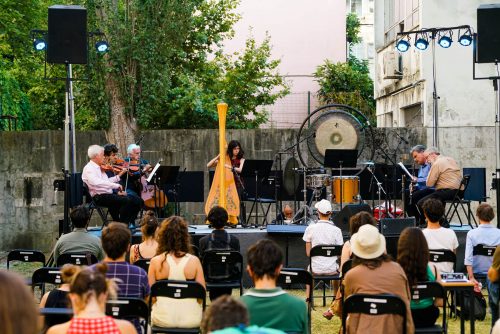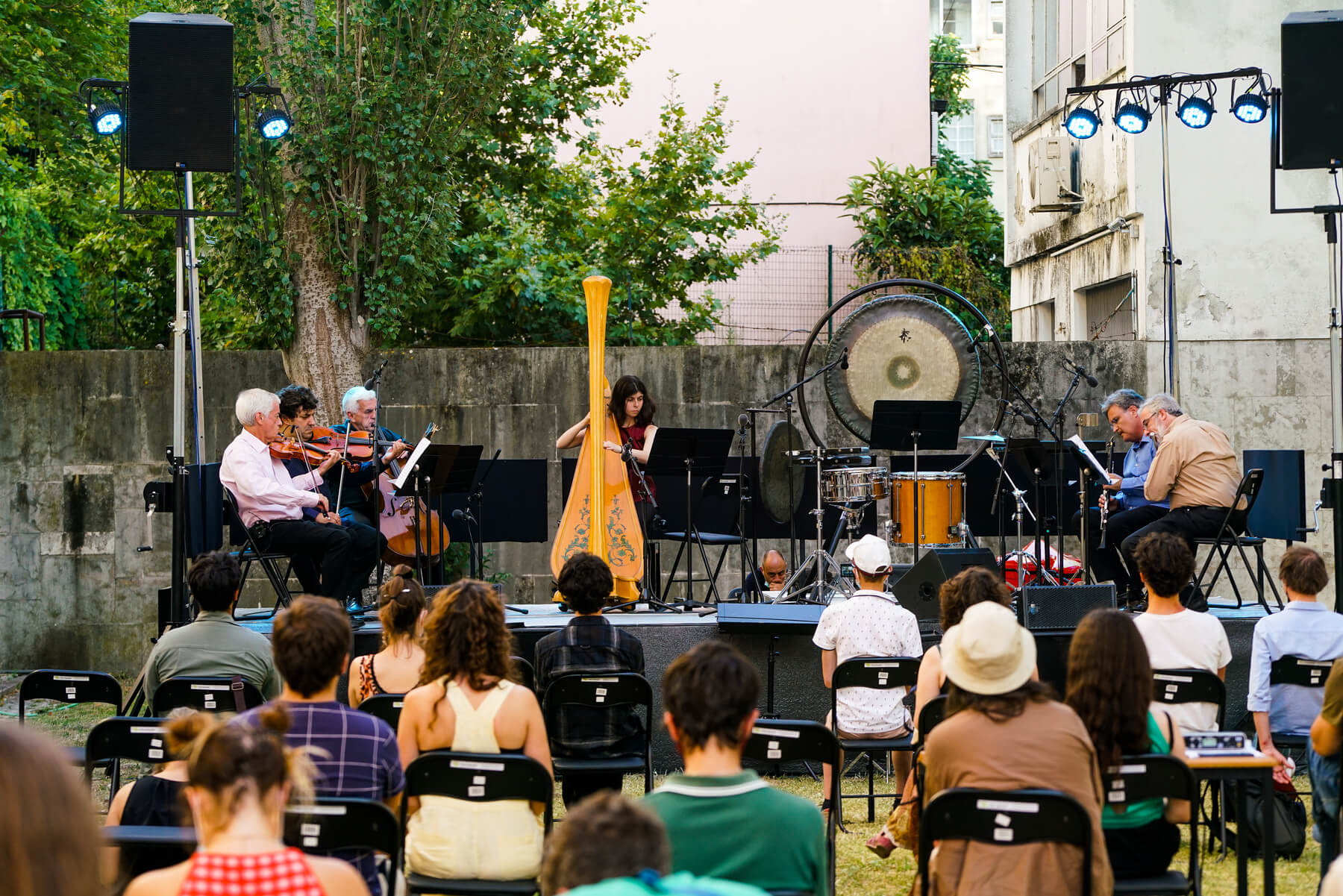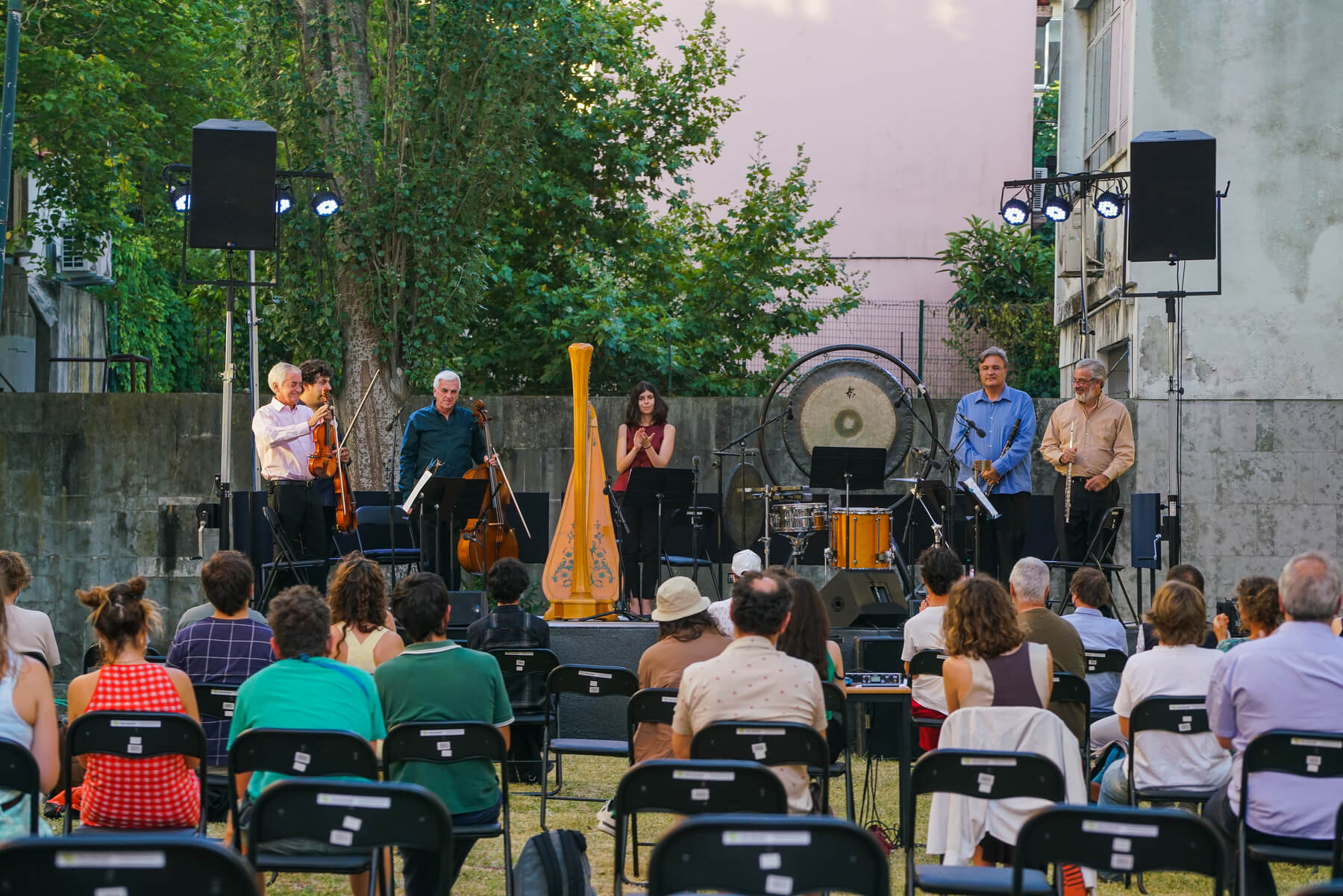The Lisbon Contemporary Music Group (GMCL) was founded in 1970 by Jorge Peixinho, a composer and one of the most important figures of Portuguese culture of the second half of the 20th century, in collaboration with Clotilde Rosa, António Oliveira e Silva, Carlos Franco and António Reis Gomes. The Lisbon Contemporary Music Group is the first Portuguese group of contemporary music, playing a historic vanguard role in opening Portuguese society to the musical aesthetics of its time. Throughout its 50 years of uninterrupted, award-winning activity, the GMCL has performed at concerts and contemporary music festivals in this country and throughout Europe and Brazil, and continues to focus on a regular pedagogical activity in art education and in schools, the development of audiences, and the training of new conductors and performers.
For the program for this concert, Filho Único invited the current artistic director of the group, José Sá Machado, to reconcile the intention of including several works by Jorge Peixinho with the desire to cast compositions by Clotilde Rosa, who, besides her artistic merits, was the only woman in the group of founders of the GMCL. Her work is featured alongside the fantastic Constança Capdeville (1937-1992).
In addition, we proposed to the GMCL to integrate into its line-up for this show a young electronic musician – who is distant from academia and orthodoxy but maintains self-taught studies in composition – to perform the electronic works. The challenge was enthusiastically accepted and so we invited Sara Vigário, who signs her musical production as Noiva (Bride) and published her debut EP “Condominium” last year.
Program:
Clotilde Rosa – Canto Solar (2010)
Jorge Peixinho – …a silenciosa Rosa / Rio do Tempo (1994)
Constança Capdeville – Momento I (1976)
Jorge Peixinho – Floresta Sagrada (1992)
Clotilde Rosa – Densidades (2002)
Jorge Peixinho – Sine nomine (1987/88)
GMCL official site
Noiva bandcamp
Noites de Verão is a co-production between Filho Único, EGEAC, the Municipal Galleries of Lisbon and the National Museum of Contemporary Art.
Within the realm of the history of ideas related to the curatorial practice of music programming, the spirit that moves us is one of searching and valuing proposals that are nourished by a fulcrum and dynamo of research and aesthetic progression, around which musicians and concerts are organized.






